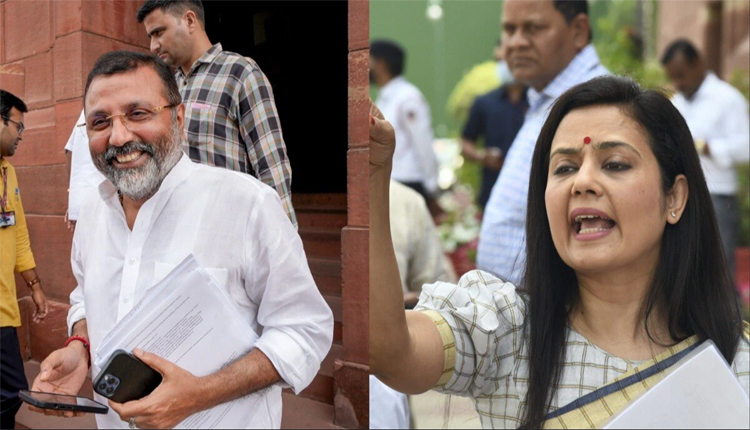NewDelhi: In a significant move to enhance legislative oversight, the Indian Parliament established 24 new standing committees two days ago. These committees have seen the inclusion of several high-profile leaders from different political parties, each assigned crucial roles to shape policy and governance. Among these, the Parliamentary Standing Committee on Communications and Information Technology has garnered particular attention due to its distinguished and contentious membership.
Nishikant Dubey, a seasoned BJP MP from Godda in Jharkhand and a four-time incumbent, has been appointed as the chairman of the Standing Committee on Communications and Information Technology. His appointment is noteworthy given his longstanding political career and influence within the BJP.
Joining Dubey is Mahua Moitra, the Trinamool Congress MP representing the Krishnanagar constituency in West Bengal’s Nadia district. Moitra’s inclusion in the committee is particularly intriguing due to her strained relationship with Dubey. The rift between these two prominent figures is well-known, stemming from past accusations and legal disputes.
Adding to the committee’s high-profile roster is Kangana Ranaut, a BJP MP from the Mandi parliamentary seat in Himachal Pradesh. Ranaut, widely recognized for her successful career in Bollywood, has recently made headlines for her outspoken statements and assertive political stance.
Another notable member is Jaya Bachchan, a respected Rajya Sabha member from the Samajwadi Party. Bachchan has previously been at the center of conflicts with Upper House Chairman Jagdeep Dhankhar and members of the ruling coalition during the last parliamentary session. Her presence in the committee adds a layer of complexity given her influential status and recent controversies.
Renowned music composer Ilaiyaraaja, also a Rajya Sabha MP, completes the committee’s diverse membership. His inclusion brings a unique perspective to the committee, blending artistic insight with legislative responsibilities.
Mahua Moitra’s journey to the committee has been tumultuous. Expelled from the Lok Sabha in December last year due to her involvement in the cash-for-query case, Moitra was found guilty of accepting a bribe from industrialist Darshan Hiranandani to ask questions in Parliament. This led to legal proceedings in the Delhi High Court, which ultimately dismissed her application seeking a restraining order against Nishikant Dubey and Supreme Court lawyer Jai Anant Dehadrai from making related posts on social media.
Despite these challenges, Moitra made a remarkable comeback in the Lok Sabha elections held earlier this year, winning her seat from Krishnanagar. Concurrently, Nishikant Dubey secured his fourth consecutive term from Godda, while Kangana Ranaut triumphed in Mandi, defeating Congress candidate Vikramaditya Singh. Ranaut’s victory marks her successful transition from Bollywood to politics, further diversifying the committee’s representation.
The formation of these standing committees is expected to play a pivotal role in shaping policies related to communications and information technology, sectors critical to India’s growth and development. However, the presence of leaders with existing tensions, such as Dubey and Moitra, raises questions about the committee’s ability to function harmoniously and effectively.
Political analysts suggest that the diverse and sometimes contentious makeup of the committee could lead to vigorous debates and robust policy formulations. On the other hand, it may also result in conflicts that could hinder the committee’s productivity and cohesiveness.
As these committees begin their work, the focus will be on how these high-profile members navigate their roles amidst existing political rivalries and alliances. The Parliamentary Standing Committee on Communications and Information Technology, under Dubey’s leadership, will be closely watched to see how it addresses critical issues such as digital infrastructure, cybersecurity, and the regulation of information technology industries.
The success of these committees will largely depend on the ability of their members to collaborate across party lines, leveraging their diverse experiences and perspectives to foster effective governance and policy-making.



Comments are closed.